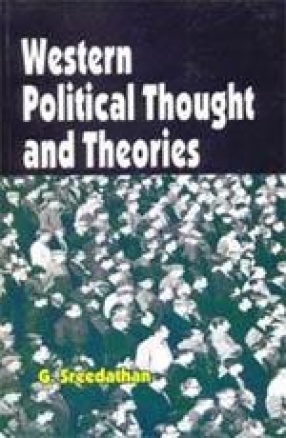Political theory, which is a part of the philosophic-scientific thinking, began in Ancient Greece. The word ‘Politics’ is derived from the Greek used the term politika to describe the totality of state phenomena. Political theory deals with the fundamental questions about the state, government, the ends of political action and the means of achieving them. It also deals with the possibilities and necessities of political situations, property, law and the enforcement of a legal code by authority; what they are, why they are needed, what makes a government legitimate, what rights and freedoms it should protect and why, what form it should take and why, what the law is, and what duties citizens owe to a legitimate government. Political thought is a wider term, which includes all aspects, which have been covered in the history of political ideas. It covers all sorts of statements, theories and evaluations on politics. "By political thought we understand the reflections on, to the exposition on political ideas." This book focuses on the evolution of political thought and theory over the centuries in the West. It discusses the political theories of the ancient Greeks with emphasis on Plato and Aristotle. It elaborates on the Divine origin theory of St. Augustine and Thomas Aquinas. During the Renaissance, machiavelli dismissed the Divine origin of State and classical philosophy, drawing instead on historical examples to offer practical advice to rules. In England, Thomas Hobbes and John Locke sought the basis for the state in "social contract" among individuals who possessed "natural rights" in a prior "state of nature". Hobbes argued that men must enter into a social contract and surrender their natural libraries to an absolute sovereign, whereas Locke concluded that the political state must have limited powers and the citizens retain the right to revolution. Later thinkers like Jeremy Bentham and John Stuart Mill invoked the utilitarian principle of "the greatest happiness for the greatest number," and pleaded for political reforms that tended to be increasingly democratic and egalitarian. The book also discusses the contemporary relevance of political theory.
Western Political Thought and Theories
In stock
Free & Quick Delivery Worldwide
reviews
Bibliographic information
Title
Western Political Thought and Theories
Author
Edition
1st ed.
Publisher
ISBN
8176298204
Length
x+424p., Index; 23cm.
Subjects




There are no reviews yet.